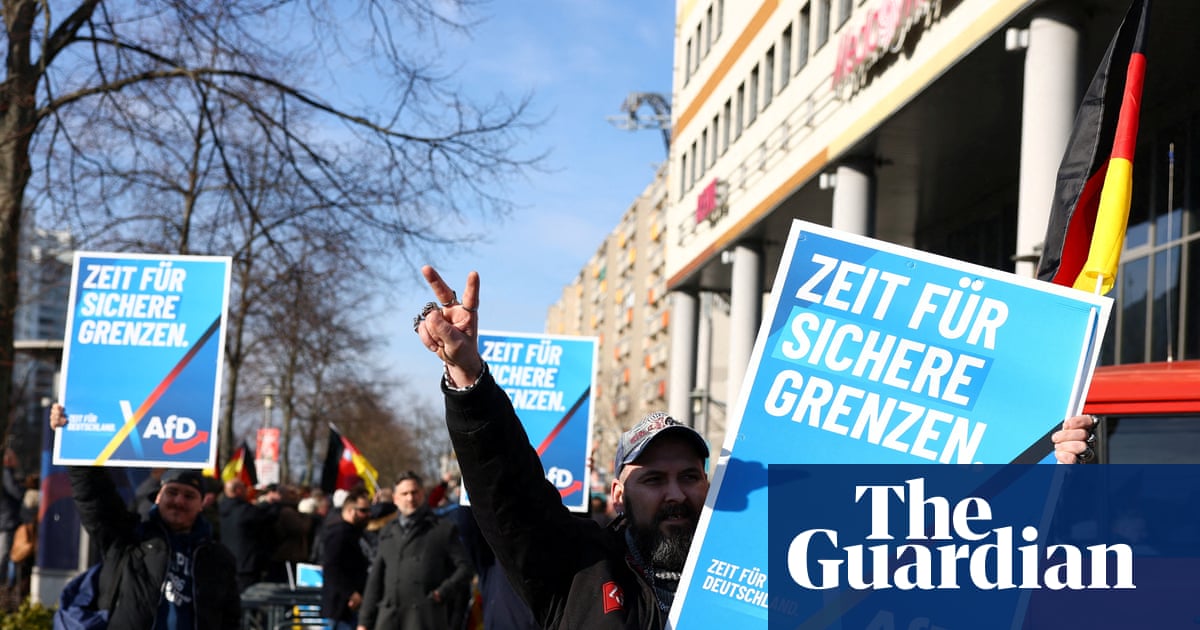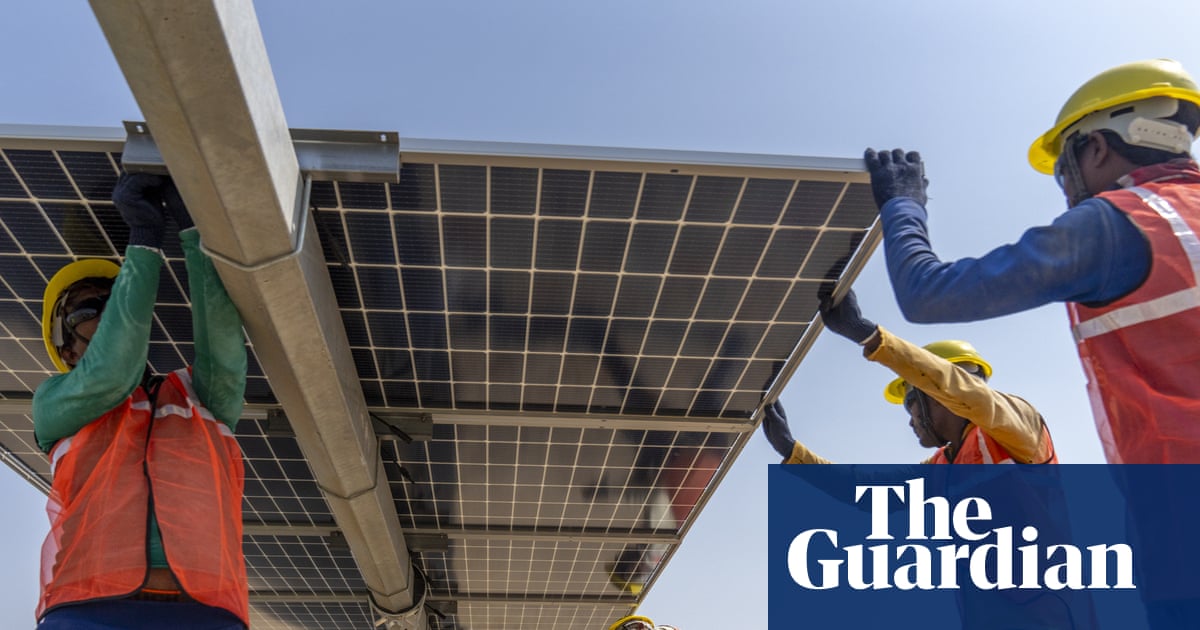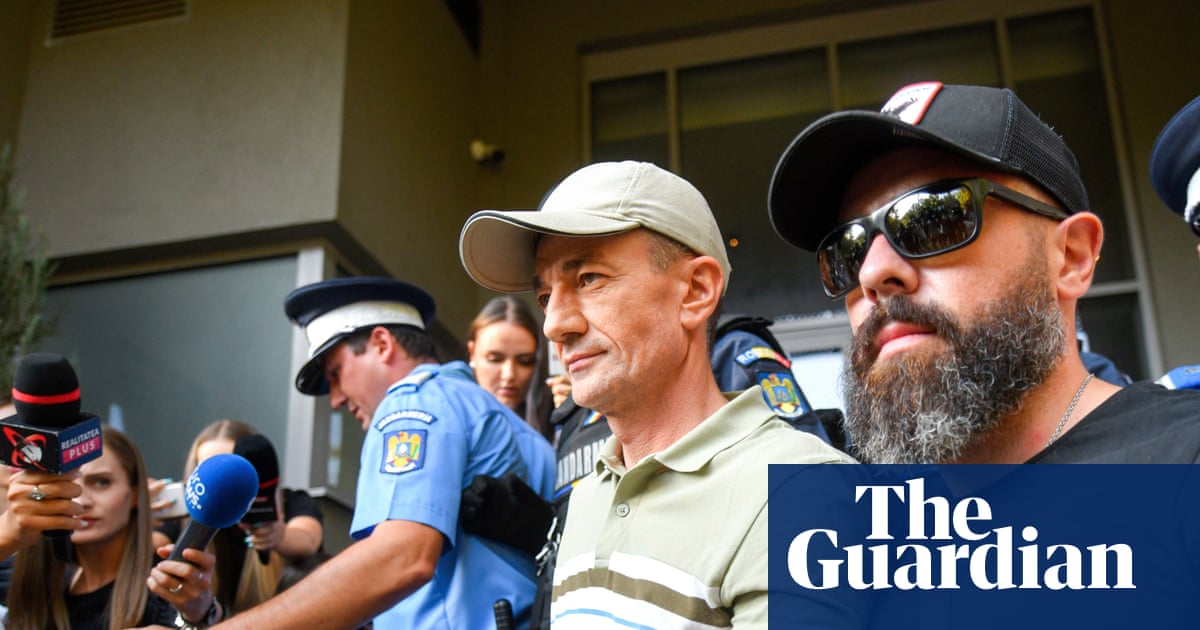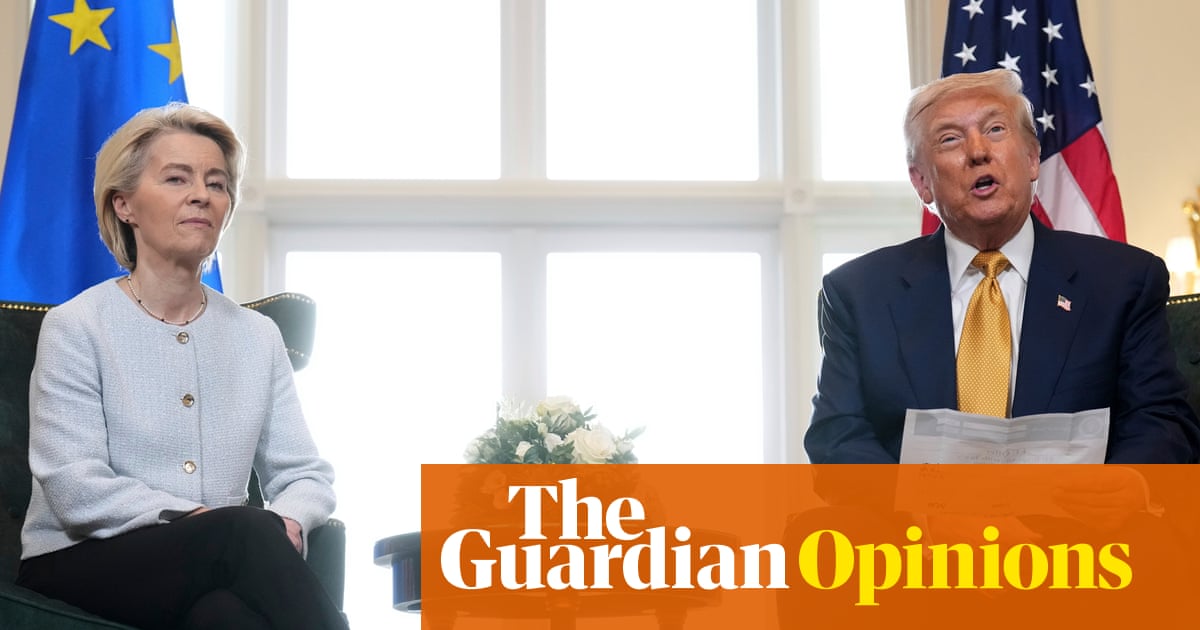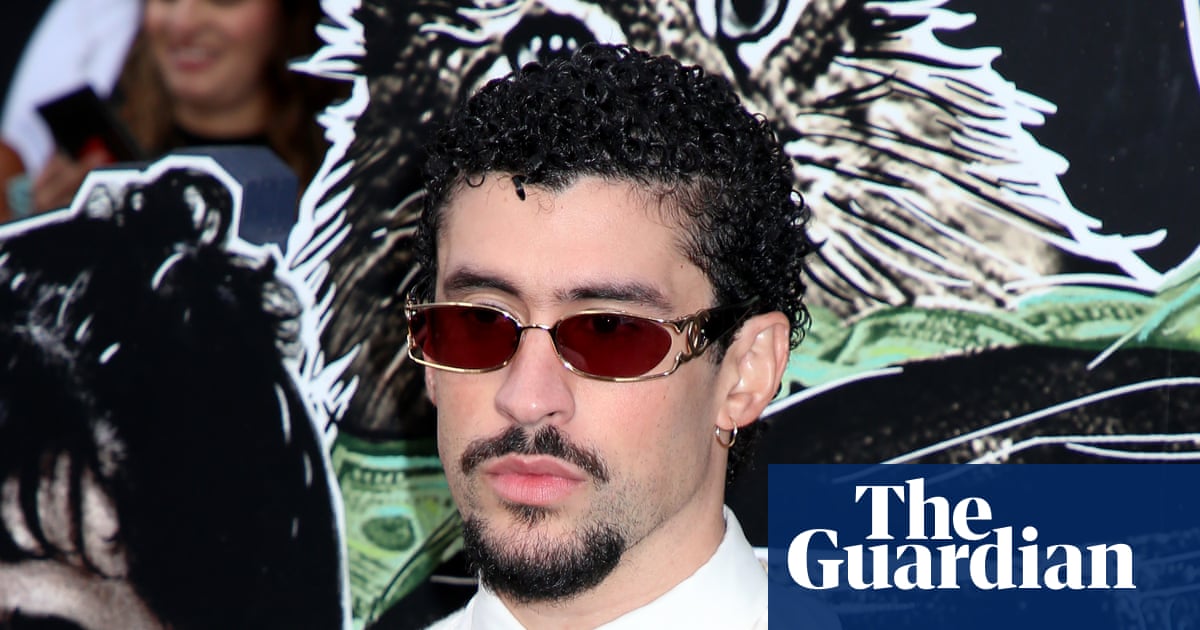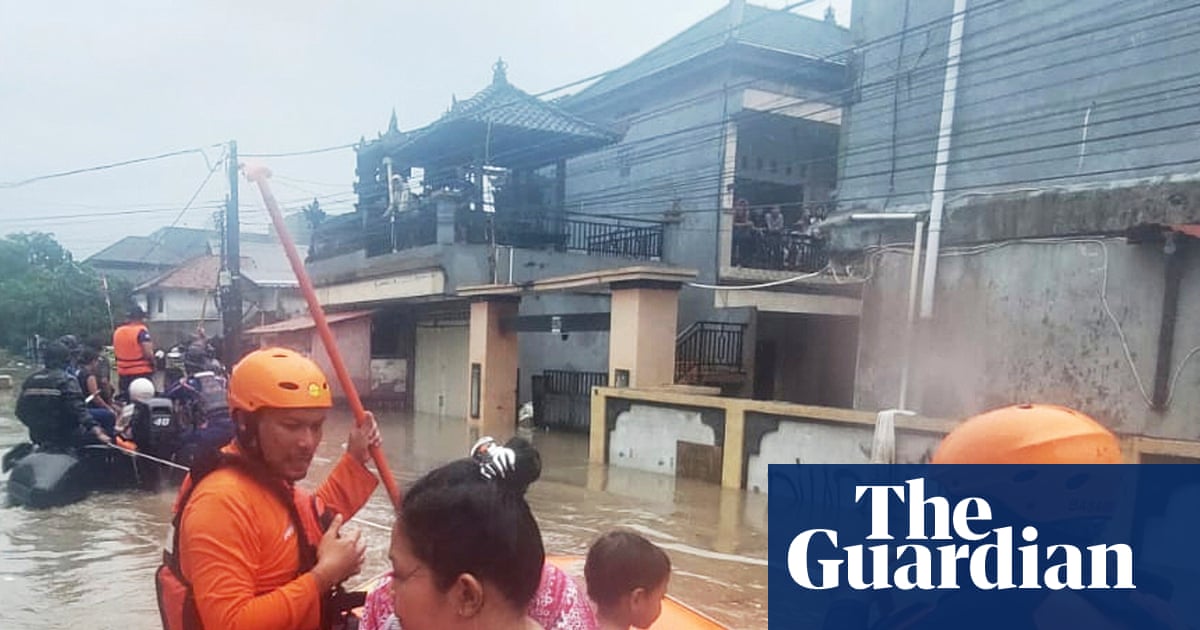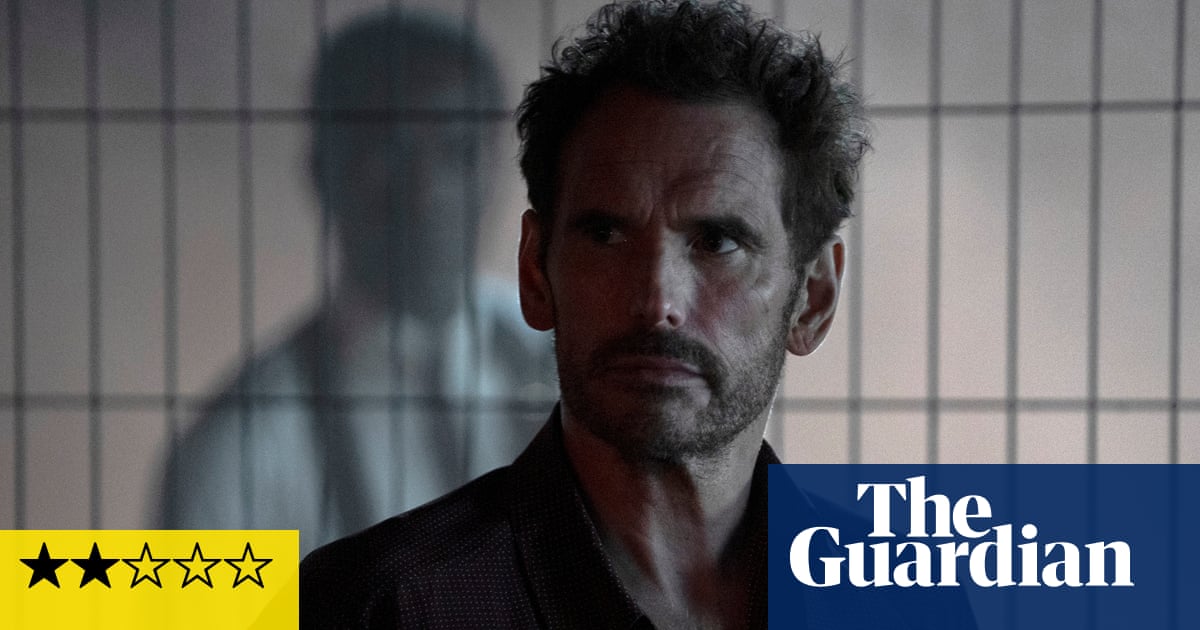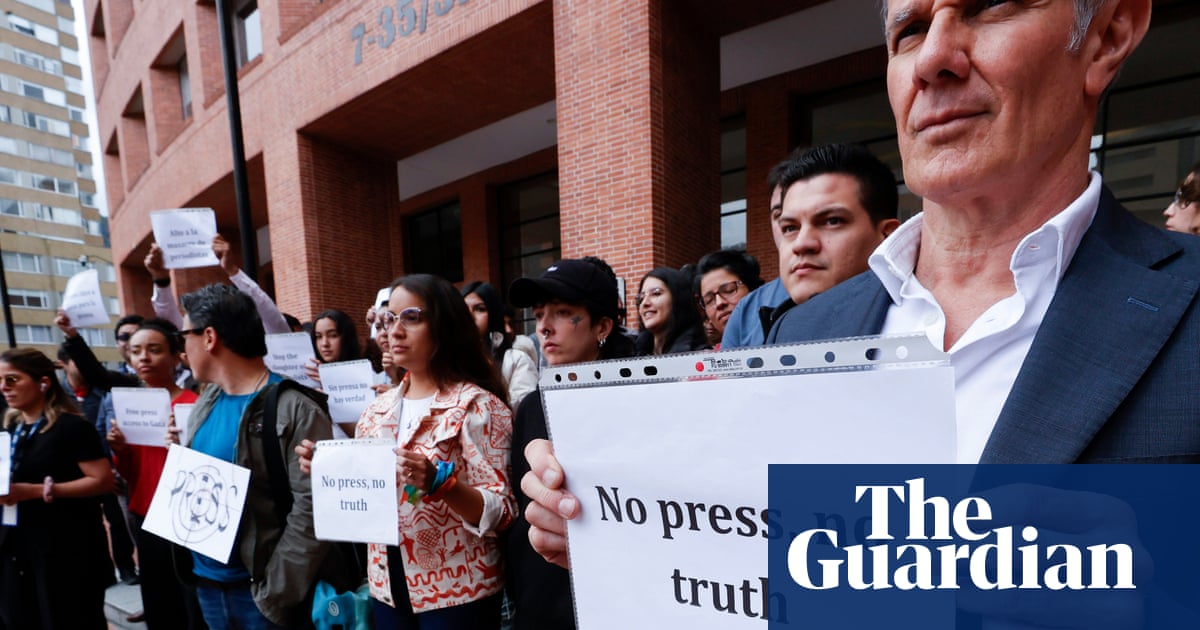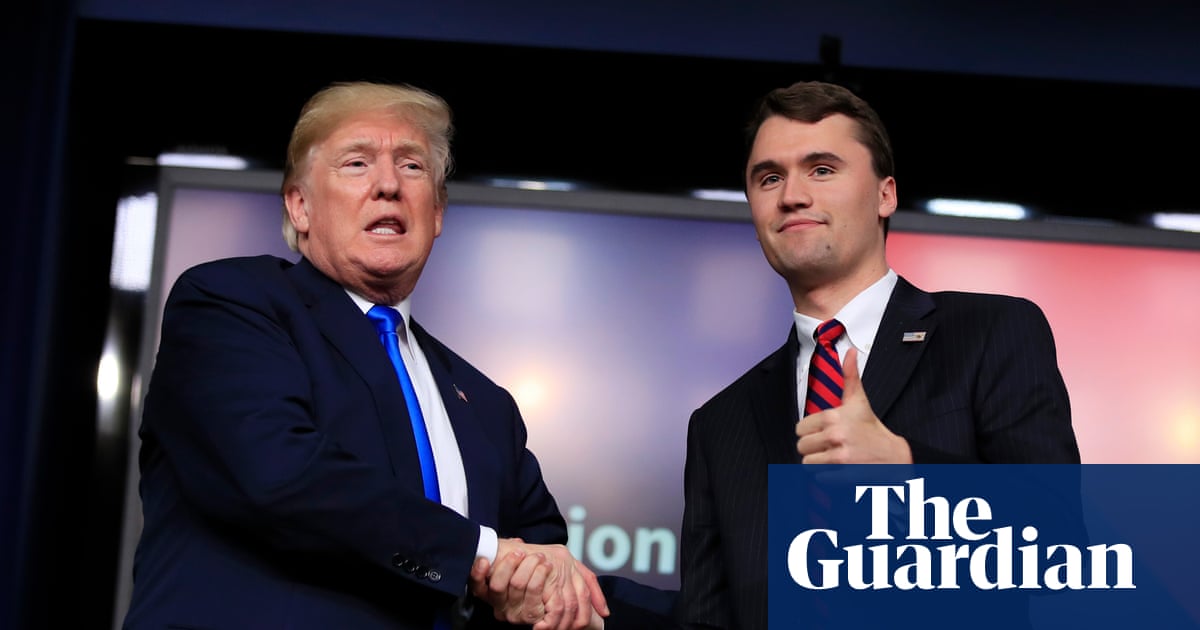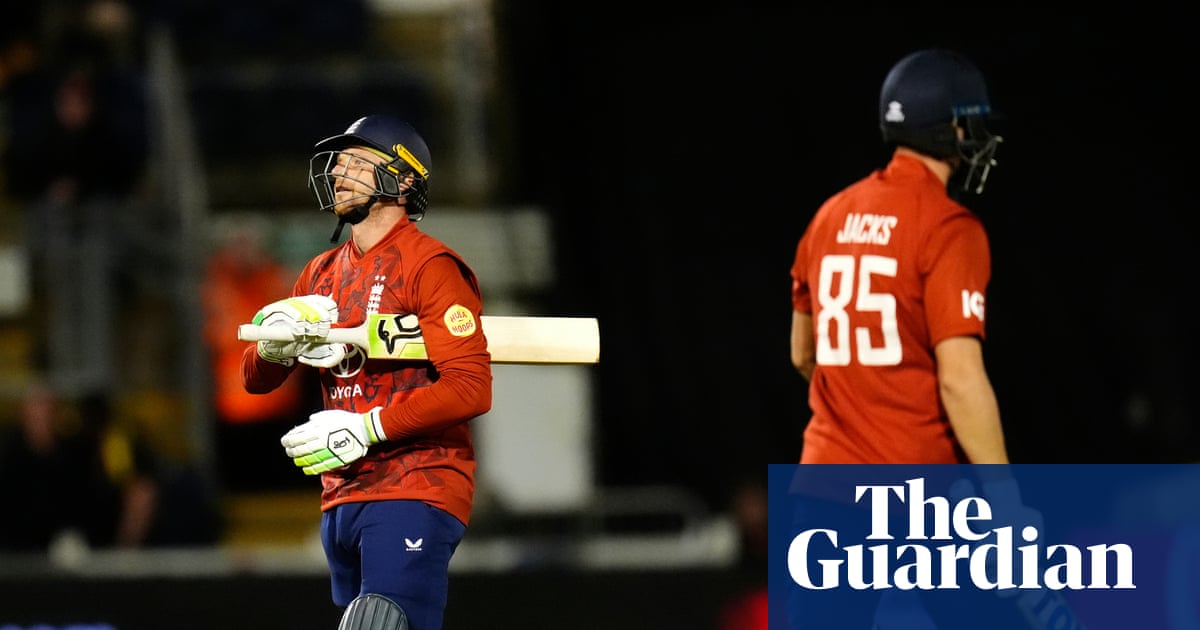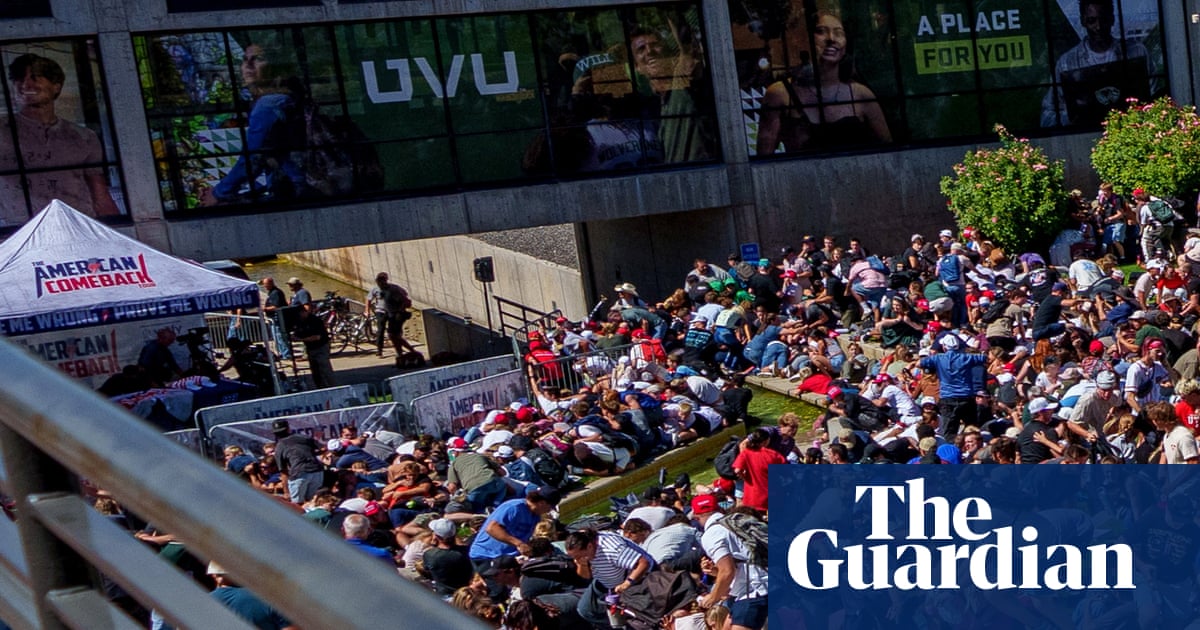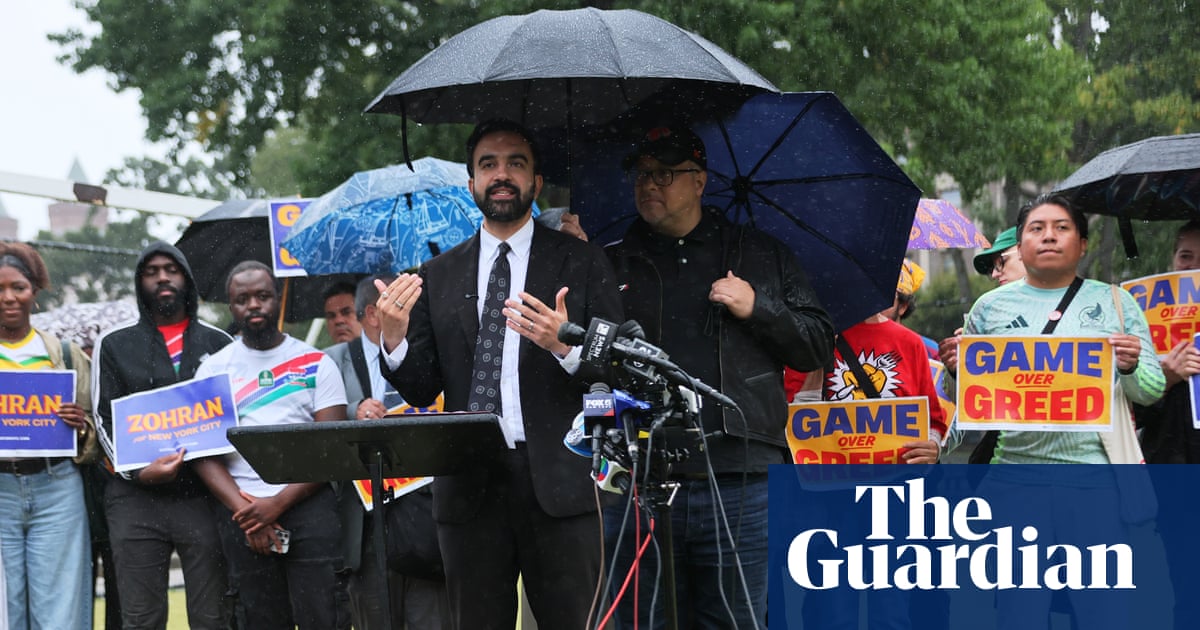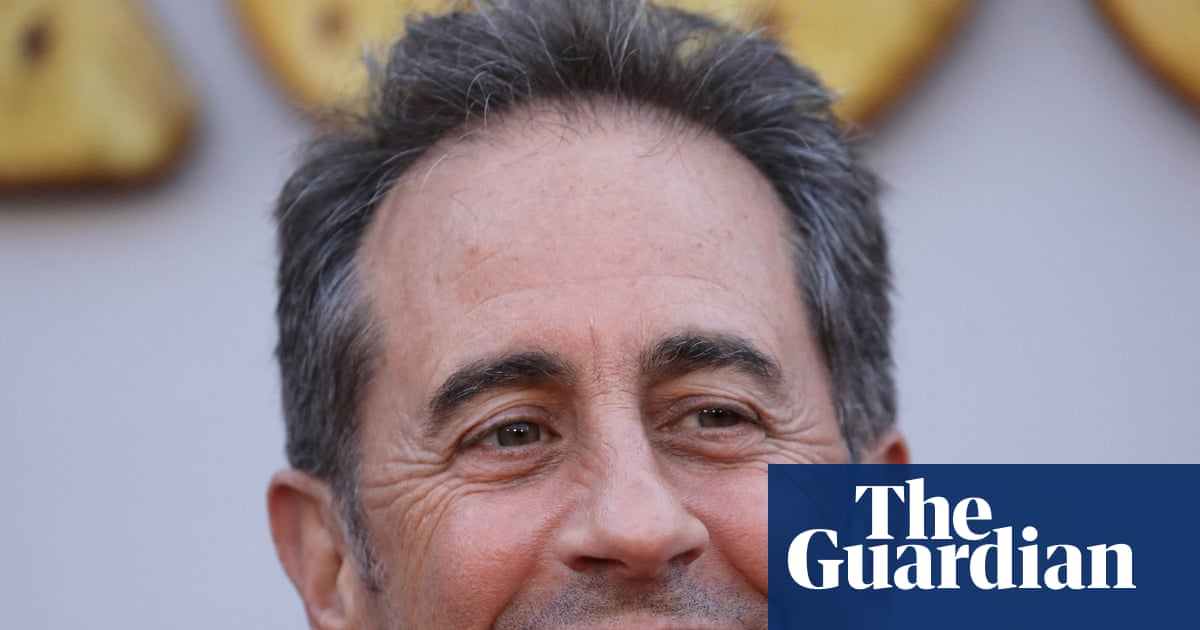Villarreal had given everything all season when with one game left the roof fell in on them, but not like that. It had been 10 long, hard months of “solidarity and commitment … methodology, work, honesty and dedication”, their manager said, yet this was no late lament, all that for nothing; instead, this was reward and release, “time to enjoy it”, to let go, so they did. Outside at Montjuïc, Barcelona had begun their party, even 2025’s first league defeat and killjoy keeper Wojciech Szczesny saving an outrageous overhead kick from his own son not spoiling the fun; inside the dressing room, the club from the small town 200 miles south had begun theirs too, and nothing could ruin this either. Someone put La Morocha on and the players were bouncing about, drumming the rhythm on the ceiling when, in another triumph for cheap construction, the first beam came down. Captain Juan Foyth, looking like a kid who’d put a football through the neighbour’s window, raised his arm to protect his teammates, quietly laid it to one side, and they carried on.
The track was changed, Handel now, and they lined up. Some tipped their heads back, gazing at the ceiling they had broken. Others put hands on hearts. Most laughed. All of them scatted and sang, at least the word they knew: maybe not die meister, maybe not die besten or les grandes équipes, and definitely not eine grosse sportliche veranstaltung, but certainly the champions. The flag they carried read “the village wants the Champions League” and now they had it. Villarreal, the team from the place whose population could fit into Montjuïc, had come to Catalonia, handed the newly crowned champions a guard of honour and then beaten them 3-2, helped by their hangovers, to secure fifth and a return to Europe’s biggest competition with a week to spare. The season, Santi Comesaña said, had been “almost perfect”.
“Back on 10 July, few people thought we would finish in the Champions League,” the manager, Marcelino García Toral, said. That wasn’t actually true; plenty predicted this, or even better. Comesaña almost said as much: it was a pity, he admitted, that Villarreal can’t finish fourth, which would have also given them access to the Super Cup. Instead, Athletic Club will. Only Madrid, Barcelona and Atlético have bigger budgets than Villarreal. They finished last season with two defeats in 18, then signed 10 players. No one outside the Big Two has a footballer better than Álex Baena. They had no European competition to distract them, playing a dozen games fewer than Athletic and Betis. And this isn’t the first time they’ve qualified for the Champions League; it’s the fifth.
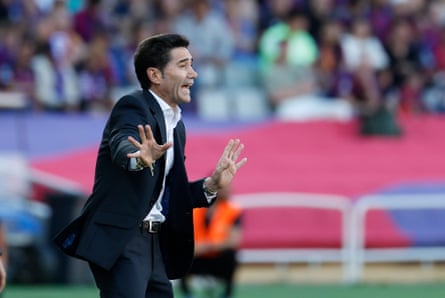
It wasn’t the first time that Marcelino had, either. It’s not even the first time he has with Villarreal. Maybe this time, he had joked to friends after they beat Leganés 3-0 last week, he’ll actually be allowed to experience it. And that was the point. Both points, in fact. The fact that it was Marcelino was a reason to trust in Villarreal being the best of Spain’s other teams. This is the man who brought Real Zaragoza from the second division to the first, took Recreativo de Huelva up and into eighth, their best-ever finish, and qualified Racing Santander for Europe the only time in their history. He turned Valencia around, finishing fourth two years running and won the cup. Then he went to two Copa del Rey finals with Athletic Club (albeit the first belonged to Gaizka Garitano, really) and won the Super Cup. And the last time he was at Villarreal, he took them from the second division to a Europa League semi-final and back into the Champions League, pride and place restored in only three years.
And then they sacked him, a week before the season began.
It took six years and a lot of soul searching, a lot of bridges rebuilt for Marcelino to return. It took a crisis at the club too, for them to need him and him to want to help. And that’s the other point: why this felt special to him, something deeper there, why he could talk tales of the unexpected, of achievement; why Champions League qualification is healing: not just a hope for the future but a fixing of the past, all well with the world. When Villarreal sacked Marcelino in August 2016, the club’s owner Fernando Roig had described it as a painful decision but one that had to be made. When they called Fran Escriba to take over, he was on his way down to get an ice-cream. He hadn’t been expecting to receive a call and Villarreal hadn’t expected to make one.
There had been a storm after Villarreal were defeated by struggling Sporting Gijon – Marcelino’s local club, the one he supports, played for, coached and is most associated with – and his wife had posted a message on social media saying “our work here is done, we leave you in the first division”. That had hurt Roig, damaging manager and club. A divide had opened up and the relationship was tense with Roig’s son, the club’s CEO. In the dressing room there were difficulties too, particularly with Mateo Musacchio, Marcelino later admitting: “There was one player with who I couldn’t coexist.” When he effectively gave an ultimatum, the club chose the players over the coach.
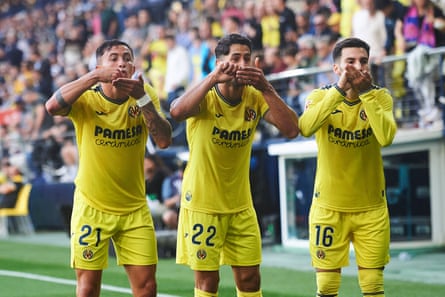
For a while, Escribá’s arrival had a liberating effect: Marcelino can be demanding, overwhelming. For a time, the tension eased, the atmosphere too. He lasted a year. Javier Calleja came, was sacked, and came back again six weeks later. Unai Emery arrived as an upgrade, won the Europa League and departed for Aston Villa. Quique Setién finished fifth and then was sacked just four weeks into the following season, his lament a familiar one: the club, he felt, had chosen the dressing room. When José Rojo Martín, “Pacheta”, took over, he could hardly believe his luck but soon saw how superficial that was: there was so much talent, it wouldn’t take much to be a decent team. He was gone in two months, defeated. He had won one of eight league games.
It was November 2023. Over time, José Manuel Llaneza, the man who had built the club with Roig, had intervened to mend the relationship, seek some rapprochement. Slowly, they had started talking again, a little affection allowed, excuses found to contact each other. When Marcelino had a serious car crash at Christmas in 2017, that brought perspective; when Llaneza passed away in 2022, there was warmth, wounds healing. When Villarreal contacted Marcelino now – professionally this time, although this was an opportunity to make amends personally – he had escaped the crisis at Marseille and turned down Sevilla. His condition for returning was simple: we’re not going to argue.
“Some people call me Marcelino,” Marcelino said at his presentation. “Some call me Marcelino García Toral. Those who know me well tend to call me Marce. My name is not Saviour. And my surname is nor Miracles.” And, yes, Saviour Miracles – Salvador Milagros – could be a real name in Spanish. And, no, he was not. But nor was he so far off.
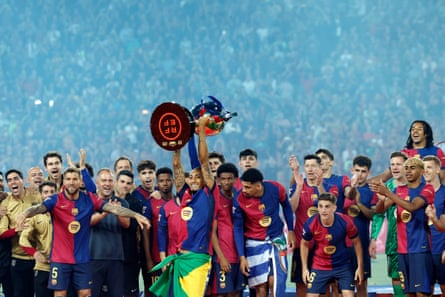
Villarreal were 13th, they had 12 points from 12 games. Defensively they were struggling badly. There were injuries, European games adding to the strain. They were knocked out of the Copa del Rey by third-tier Unionistas in January, which was embarrassing but probably helped; there was time to train, focus turned on to stopping the bleeding. At the other end, no one provided more assists than Baena. Asked what Marcelino demands of him, Baena replied simply: “That I don’t walk.” Alexander Sørloth scored nine in the last eight weeks, 15 in the last 16. Villarreal beat Barcelona, drew with Real Madrid and lost twice in the last 18, finishing just short of a European place.
Then this summer, 16 players went, a shift in group dynamics as well as style. Once that might have been a source of tension, disagreements. But lessons have been learned and this was going to be more like a Marcelino team, more his. There was a move towards athleticism, even height: direct, counterattacking, set up in 4-4-2, with one winger coming in, the other going out. Thierno Barry came for €13.5m, Logan Costa for €17m. Nicolas Pépé and Pape Gueye were free. So too Sergi Cardona; no full-back has more assists. Tea-loving Ayoze Pérez was the signing of the summer at €4m, Marcelino making him more of a centre-forward, from where he has 19 league goals. Baena, who spent 11 hours agonising over a Saudi Arabian offer in January, decided to stay: no one has created more chances. “He is very, very, very good” Pérez says. “The ability he has to find you is incredible; as soon as he gets the ball I just have to move and he reaches me.”
La Liga results
ShowAtlético Madrid 4-1 Real Betis, Barcelona 2-3 Villarreal, Celta Vigo 1-2 Rayo Vallecano, Las Palmas 0-1 Leganés, Mallorca 1-2 Getafe, Osasuna 2-0 Espanyol, Real Sociedad 3-2 Girona, Sevilla 0-2 Real Madrid, Valencia 0-1 Athletic Bilbao, Real Valladolid 0-1 Alavés.
Together, they were bouncing about Montjuïc on Sunday night while Villarreal put up a tweet of their manager, standing there all AI, decked in gold holding the Champions League ball. There were no words, just his name: Salvador Milagros.
“Few thought this on 10 July, but we planned well, built well, and worked very hard,” Marcelino said. “Last year was very difficult: we came into a complicated situation but we were convinced we could turn it around and between us all we have; I want to say thank you to everyone. A year ago, we were scared the team was going down but this is a good club, very well managed. The second half of last season our numbers were practically Champions League numbers. We did a wide restructuring and we got it right. The key is having good players who are also good people. These are the values you need to make a team … and it is always the teams that achieve their objectives. This means a lot to the staff: three times we’ve qualified for the Champions League, and we only got to enjoy it once. We hope we can enjoy this one.”

 3 months ago
103
3 months ago
103
